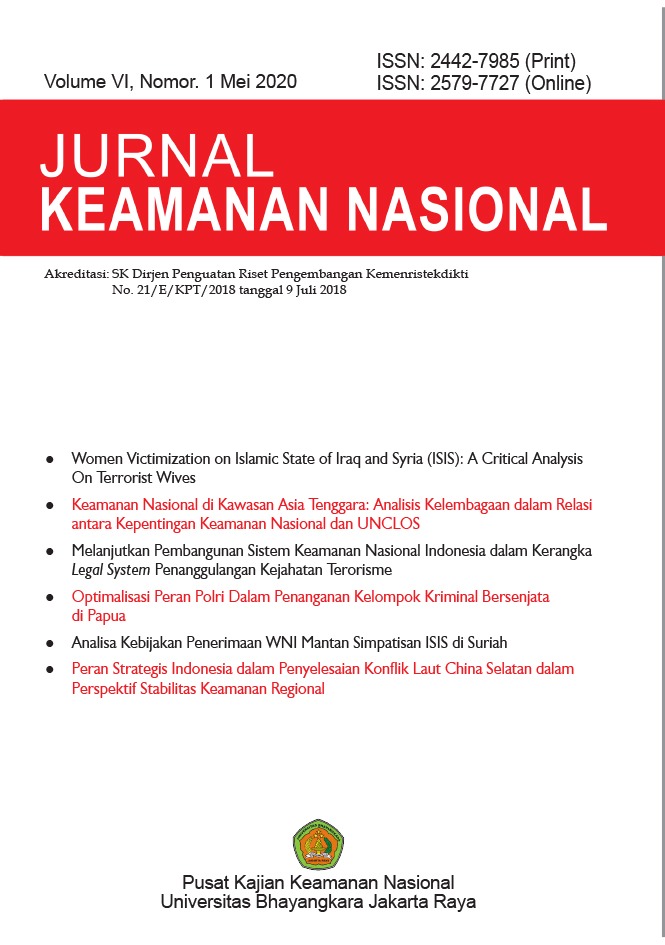Peran Strategis Indonesia dalam Penyelesaian Konflik Laut China Selatan dalam Perspektif Stabilitas Keamanan Regional
Keywords:
Indonesia’s strategic role, resolution, South China Sea conflicAbstract
The South China Sea Conflict has yet to be resolved, this conflict involves 4 ASEAN countries (the Philippines, Vietnam, Malaysia and Brunei Darussalam) as well as Taiwan and China. The South China Sea Conflict continues to escalate and can pose threats in the region. What’s more, the United States wants freedom of navigation in the South China Sea. The South China Sea Conflict entered a new phase in which the Philippines won a lawsuit in 2016 at the International Arbitration Court, which in essence did not recognizing the claims of the Chinese territory and the traditional fishing ground that China has always used as a proposition. This research is a qualitative descriptive study with the aim to formulate the role that can be taken by Indonesia in resolving the South China Sea conflict. The data collection technique is in-depth interviews with experts or observers of international relations. The results of the study are
in the form of policy recommendations on the steps that must be taken in resolving the South China Sea conflict.
Downloads

Downloads
Published
Issue
Section
License
Please read and understand the copyright terms for submissions to this journal.
Copyright Notice
The Jurnal Keamanan Nasional is under the Creative Commons Attribution 4.0 International (CC-BY 4.0) License, according to which:
1) Authors retain copyright and grant the journal the right to first publication, with the work simultaneously licensed under the Creative Commons Attribution (CC-BY 4.0) that allows the sharing of articles published with the acknowledgement of authorship and the initial publication in this journal.
2) The authors are authorized to make additional contracts separately for distribution of the version of the work published in this journal (for example, publication in an institutional repository or as a chapter of the book), as long as there is recognition of authorship and initial publication in this journal.
3) Authors are authorized and encouraged to publish and distribute their work online (for example, in institutional repositories or on their personal pages) at any time before or during the editorial process, as it increases the impact and reference of the published work.












